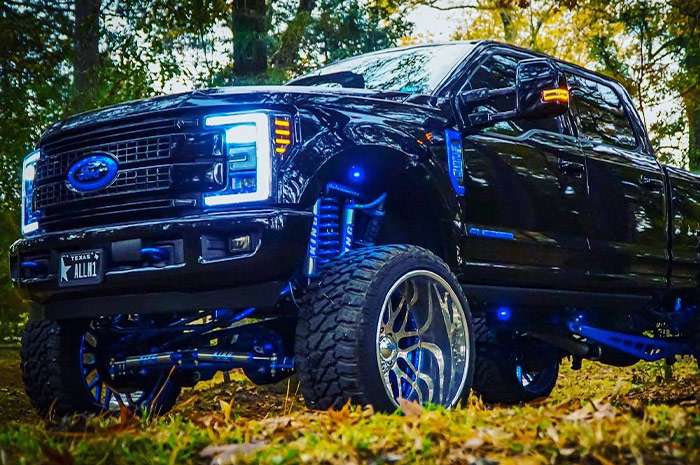
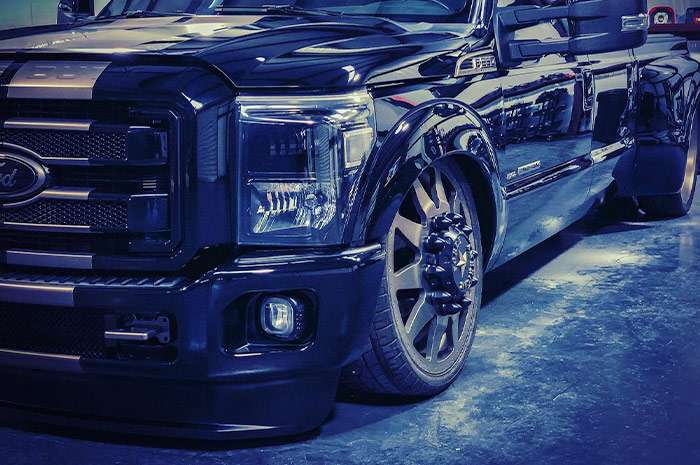
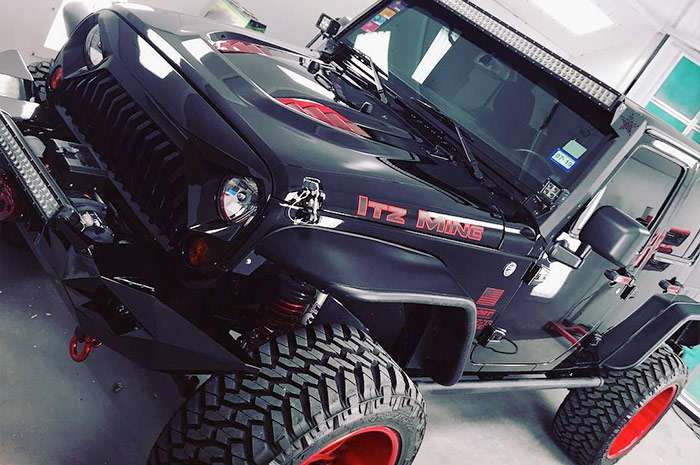
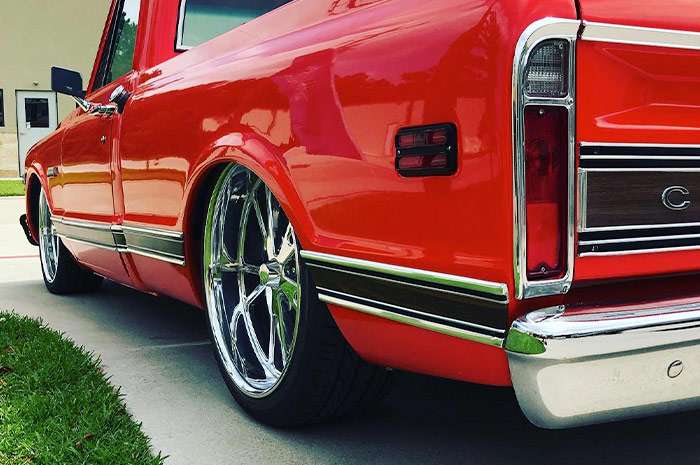
Where the Rubber Meets the Road
Whether it's performance or looks (or both!), you know the importance of having the right wheels and tires. You're in the right place. We will help you pick out and order the perfect wheels and/or tires for you vehicle, and install them. If you just need installation, we do that also!
Wheels
Get the Style and Performance You're Looking For
With the Perfect Wheels from AllN1
Do you need a new set of wheels? We can get you any brand and style at an unbeatable price. No matter what type of vehicle you have, we'll make sure you get the perfect custom or aftermarket rims to make your ride stand out. If you're looking for a tire and wheel package, look no further. You can get the best wheels and tires installed at AllN1 Autoworks.
Our Wheel
Services
Ordering & Installation
Let AllN1 take care of the ordering and installation of your wheels for you! We will also install wheels that you already own. Not sure what you need? We can help!
Wheel Repair & Refinishing
Curb rash, bent wheels and cracked rims aren't just cosmetic issues, they also lead to performance and safety issues. Let AllN1 fix your wheels to original condition!
Wheel Custom Coloring
Restore your wheels to original or choose a custom finish. Powder coating offers a durable finish that will protect, and custom painting lets you personalize your wheels.
Choosing the Right Wheels
Types of Wheels
Buying a new set of wheels can be as much of an investment as you choose to make it. There are many options to consider when choosing the right set of wheels. We'll go over some of the things to consider here when choosing the right wheels for your vehicle.
Cast Wheels
Cast wheels are formed using a mold to achieve shape and form. Molten metal is poured into the mold. As the metal cools, it hardens into the shape of the wheel. There are different ways to cast wheels. Gravity casting, low-pressure casting, and high-pressure casting. Each type of casting has its own benefits and drawbacks.
Vs.
Forged Wheels
Cast wheels are formed using a mold to achieve shape and form. Molten metal is poured into the mold. As the metal cools, it hardens into the shape of the wheel. There are different ways to cast wheels, gravity casting and low pressure casting. Each type of casting has its own benefits and drawbacks.
Cast Wheels
Pros
Cast wheels offer a good value while also maintaining strength and a lighter weight. They are easier to make, so the cost savings are often passed on to the buyer.
Cons
Using molten aluminum can result in inconsistencies that can cause cracking and oxidation in the wheel, and structural integrity can be reduced. Cast wheels may be heavier to compensate for these issues.
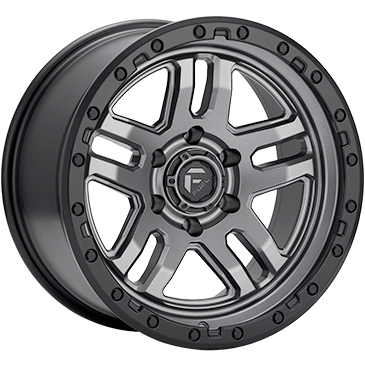
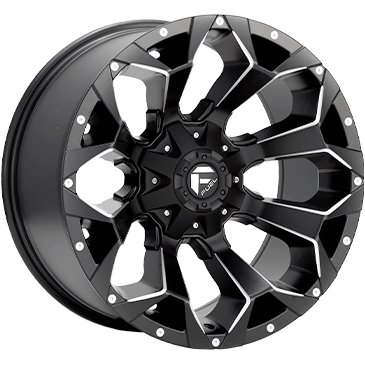
Forged Wheels
Pros
Forged wheels are less porous, so have better structural integrity. Forging makes these wheels stronger, durable and resistant to corrosion and oxidation. Forged wheels usually have greater performance and fuel efficiency.
Cons
Forging is a more time-consuming and precise process, therefore more expensive than cast wheels. Since cast wheels can be high-quality, some don't think the higher price point is worth it.
Steel Wheels
Steel wheels are the cheapest and most durable wheel option on the market. to winter conditions, and particularly for heavy or hard-working vehicles. Because steel wheels are so much heavier than alloys in the same sizes, they can put additional strain on your car or truck’s suspension. This can make acceleration more difficult and change your center of gravity, which ultimately can affect handling. During the winter though, all that extra weight can mean extra traction when you need it most on icy roads. Steel wheels are not aesthetically the greatest, but if you’re looking for function over form, steel wheels might be just what you need. Consider this: police departments run steel wheels on their fleets of cars, they’re cheap to run through with heavy use, and durable enough to handle running over curbs regularly.
Vs.
Alloy Wheels
Alloy wheels generally cost more (over $500 for a full set), but they save in the long run on fuel economy alone. Thanks to being lighter weight versus steel, they’ll give you better fuel economy, especially during city driving. Unfortunately, alloy wheels can bend and crack more easily, but that’s a worthwhile trade off when you consider gas mileage, handling and better acceleration. They feature nicer designs that add both style and function when you’re modifying your vehicle.
Steel Wheels
Pros
Less Expensive
Most Durable
Great in Winter Conditions
Ideal for Heavy Vehicles & Towing
Cons
Can Strain Suspension
Less Acceleration
Not the Best Looking


Alloy Wheels
Pros
Excellent Fuel Economy
Better Acceleration & Handling
Better Better Looking Designs
Cons
Cracks / Chips More Easily than Steel
More Expensive
Tires
The Right Tires Mean Everything
Get the Right Tires for You Vehicle from AllN1
Wherever life takes you, we’ll make sure you get in style and with performance. The best selection with a guaranteed perfect fit. Firsthand research and advice. Free tire Road Hazard Protection with roadside assistance. Convenient installation options, including mobile install services in many areas.
Our Tire
Services
Ordering & Installation
Let AllN1 take care of the ordering and installation of your wheels for you! We will also install wheels that you already own. Not sure what you need? We can help!
Wheel Repair & Refinishing
Curb rash, bent wheels and cracked rims aren't just cosmetic issues, they also lead to performance and safety issues. Let AllN1 fix your wheels to original condition!
Wheel Custom Coloring
Restore your wheels to original or choose a custom finish. Powder coating offers a durable finish that will protect, and custom painting lets you personalize your wheels.
Types of Tires
Passenger Tires
Tire options in this class are generally designed for a smooth and quiet ride, all-season traction and long-lasting tread life.
Performance Tires
Performance car tires usually have a much higher speed rating than touring tires, and they're engineered to perform well in all kinds of different weather conditions — especially wet conditions. They have larger circumferential and lateral grooves, which help them with wet weather traction. Performance tires also feature fairly dense siping and silica-enriched tread compounds for better grip to stay safe in most weather conditions.
Performance Tire
Profile / Tread
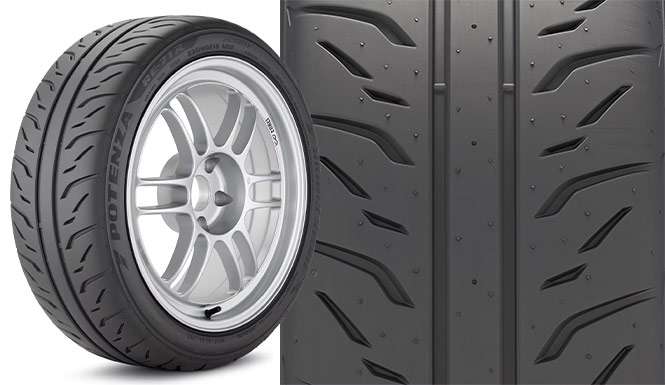
Performance Tire
Stats
Traction (Dry)
Traction (Wet)
Ride Quality / Noise
Treadwear
Performance Tire
Features
Responsive Handling
Great in Wet and Dry Conditions
Good Winter Condition Traction
High Speed Rating
Sporty Look
All-Season Tires
All-season tires are radial tread tires suited for most weather conditions. Why not get all-season tires instead of summer tires and winter tires? They don't excel in these road conditions. For example, all-season tires work well on wet roads or roads with an inch or less of snow, but they won't perform as well under severe weather conditions as winter tires can. If you're in an area that doesn't have extreme conditions, all-season tires are a great choice.
All-Season Tire
Profile / Tread
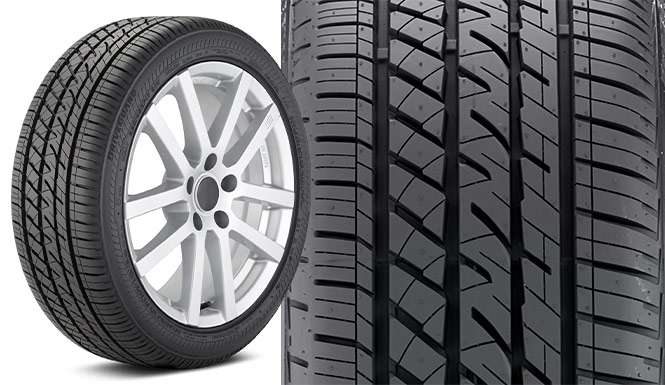
All-Season Tire
Stats
Traction (Dry)
Traction (Wet)
Ride Quality / Noise
Treadwear
All-Season Tire
Features
Long Treadwear
Good / Great Ride
Good Handling
Good in All Weather Conditions
Great Where Climates Aren't Extreme
Summer Tires
Sometimes called "three-season" tires, summer tires are made for optimal performance in all seasons but for winter. Summer tires provide unique tread compounds that improve your traction and grip when driving at higher speeds. Summer tires do not have good traction in cold conditions, both wet and dry. You can find summer tires in a wide variety of grades, such as touring summer tire options and extreme performance summer tires.
Summer Tire
Profile / Tread
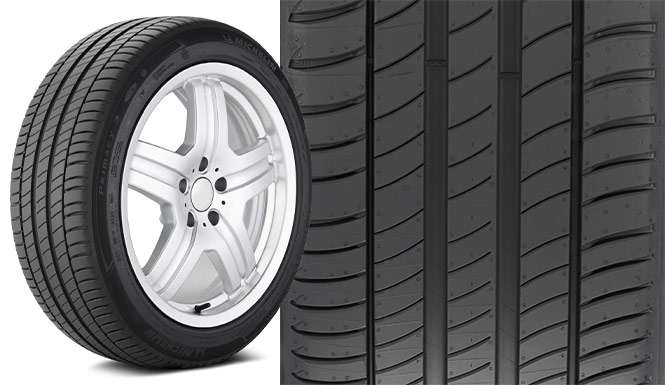
Summer Tire
Stats
Traction (Dry)
Traction (Wet)
Ride Quality / Noise
Treadwear
Summer Tire
Features
Good in Both Wet and Dry Conditions
Comfortable Ride
Great Handling
High Speed Rating
Touring Tires
Touring tires can deliver a comfortable and quiet ride while maintaining high performance and handling qualities. For those who frequently drive on highways and don't have to fear the winter months, touring tires are some of the best tire types you can find.
Touring Tire
Profile / Tread
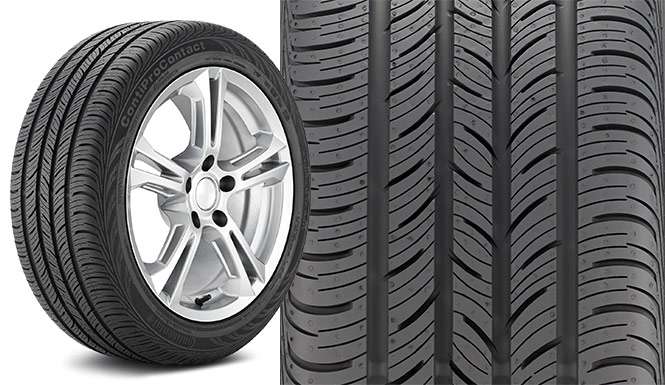
Touring Tire
Stats
Traction (Dry)
Traction (Wet)
Ride Quality / Noise
Treadwear
Touring Tire
Features
Wider Treads / Bigger Contact Area on the Road
Great Handling
Smooth Ride
Increased Speed Ratings
Geared for Performance
Types of Tires
Truck & SUV Tires
Truck and SUV tires are generally divided by how you use your vehicle. You may need tire options that can handle a journey in the wilderness when the pavement ends, or you may do a lot of driving on the highway. Either way, if you drive a truck or SUV, you have plenty of different tires that meet your needs.
All-Terrain Tires
All-terrain tires are made for off-road environments. All-terrain tires are outfitted with a more aggressive tread pattern than other tire types. The larger tread blocks and increased voids provide excellent traction to handle terrain of all kinds — from gravel to sand and light mud. Let's face it, all-terrain tires also just look badass. They have an aggressive appearance, but with minimal sacrifice in noise, longevity and comfort.
All-Terrain Tire
Profile / Tread
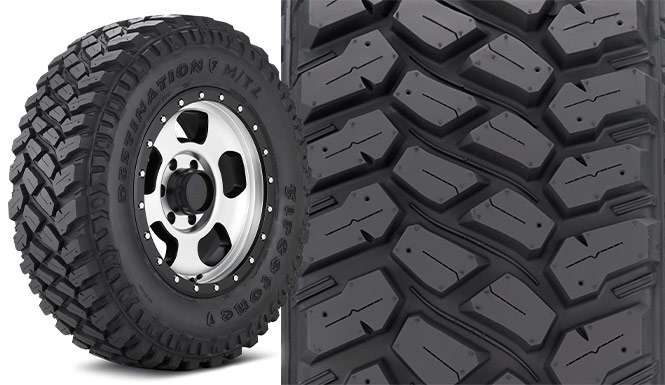
All-Terrain Tire
Stats
Traction (Dry)
Traction (Wet)
Ride Quality / Noise
Treadwear
All-Terrain Tire
Features
Excellent Off-Road Traction
Made for All Terrains
Agressive Look
Large Tread Blocks and Increased Voids
Good Treadwear
Highway Tires
Highway Truck/SUV tires have all-season tread patterns and can handle the heavier weight of a heavier truck or SUV. Highway Truck/SUV tires are very comfortable on the pavement. Highway tire options also have durable compounds and tread patterns that can resist uneven wear to deliver a longer-lasting tread life for your truck or SUV.
Highway Tire
Profile / Tread
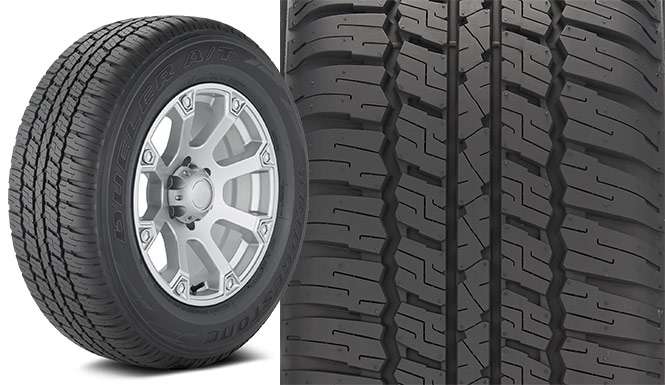
Highway Tire
Stats
Traction (Dry)
Traction (Wet)
Ride Quality / Noise
Treadwear
Highway Tire
Features
Comfortable on the Road
Some Off-Road Capability
All-Season Tread Pattern
Handle Heavyweight Vehicles
Good Treadwear
Common Wheels & Tires Questions
If you have a question that is not addressed here, please call us at 832-77-ALLN1 (832-772-5561).
New Tires?
How Do I Know if I Need New Tires?The best way to tell if you need new tires is to inspect the wear on your tire tread. Many people will tell you do the penny test, which measures 1/16th of an inch of tread, but we really recommend you do the quarter test which measures 2/16th of an inch.
Below 2/16th of an inch and your tires will experience a serious loss in stopping power and hydroplaning resistance. We highly recommend replacing tires worn to or below 2/16th of an inch of tread depth.
It’s quick and easy. Place a quarter into the groove of your tire tread with Washington’s head pointing toward the tire. If his head is at all obscured by the tire tread, you have enough tread. If his head is uncovered, it is time to get new tires.
Regardless of the tread, if you have had your current tires for over 6 years you should replace them.
Installation
Will you install tires / wheels on my vehicle that I already own?Normally, we order your tires and/or wheels for you, and then install them, but if you've already purchased new tires and need us to install them, we're happy to accomodate that as well.
TPMS
If I have tires and/or wheels installed at AllN1, will the tire pressure monitoring system (TPMS) still work?The tire pressure monitoring system (or TPMS) is the system in your vehicle that monitors your tire pressure. The TPMS low tire pressure indicator is a symbol, usually yellow, on the dashboard that illuminates on the dashboard that resembles a horseshoe with an exclamation point.
We understand the importance of your TPMS, and that in these busy times it may be your defense against an under-inflated tire.
On 99% of new tire installations, we can keep your TPMS working like it should. If there is an issue, however, you will be notified, and before we finish the installation, and given the choice to continue.
Which Wheels?
What Should I Look For When Buying New Wheels?The most important consideration when you purchase new wheels for your vehicle is that you like the way they look. Nah, love the way they look. You shouldn't settle, and get the design you love.
After you find your design, choose the type of rims (aluminum vs. metal) and the manufacturing style.
Set your budget. You get what you pay for, but you can also find high-quality and attractive wheels at every price point.
Lastly, do your research on wheel manufacturers / brands. There are some great ones out there.
Oh wait, really lastly... Ask us. We know all the info on brands and the rest of the above, and we would love to help you find exactly what you need in new wheels.


































